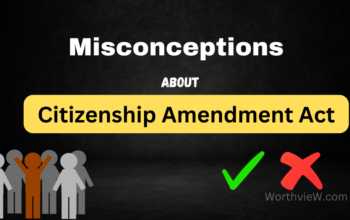Because those divorcing couples, whose cases go to trial, are put to struggle with lots of financial problems and mood swings, not to mention those everlasting backlogs, more and more people strive to sort out their issues with the help of a mediator and land one of the best online divorce platforms. This solution is known to be less emotionally draining, much cheaper, and more peaceful than going to court.
The main idea behind a mediation procedure is to inspire partners to pull together and settle their problems privately in a peaceful environment. Truth be told, it provides those in need with a complete toolset so that they can come up with their settlement terms amicably and end their marital relationships without any outside help. Nevertheless, filing for divorce without a lawyer is not always an option.
Since a mediator is supposed to sit on the fence and giving legal advice isn’t part of his or her duties, it is a good practice for some divorcing couples to have their lawyers when needed. Having a legal counsel at the right time doesn’t only help people get a deeper insight into their problems but also gives them enough time to go into the matters in advance so that they can make the right choices.
So, when should you look for legal backup? It may be said without exaggeration that you should get an attorney as soon as you barely think about a breakup for the first time and not the moment you are supposed to collect the documents needed to file for divorce. Being able to get a piece of legal advice when needed is hard to overestimate. This is how you can make a breakup less stressful and disheartening and get the result that you expect. Below, there are a few tips on how to select the right legal counsel:
Manage your expectations
No matter how experienced a lawyer is, he or she cannot work wonders and give you big promises. If you believe that it is possible to get an expert that can give you some guarantees, then you are very likely to end up in disappointment eventually. No consummate professional will ever promise you the moon mainly because no one can predict what is going on next. Moreover, you should never hire a person who seems to be the most sympathetic to your difficult situation. When choosing one, consider only how skillfully you think he or she will defend your best interests.
Come up with your expectations
Before talking to your lawyer, decide on what your needs are and what goals you pursue first. Let us assume that you strive to get full custody of your kids, get entitled to receive alimony, keep a particular piece of property, etc. Don’t neglect to list all your expectations and priorities so that your attorney can easily understand what your perfect outcome of the case is and deliver consistent divorce help.
If you cannot specify exactly what you want and expect, then it doesn’t make sense to make an appointment with your attorney any time soon. If your legal counsel disposes you to get a mediator when you are pretty sure that it will be hard for you to come to terms with your “almost” ex, then this shows that you two will struggle to work together. Understanding your needs and expectations will help you identify who you want to be on your side.
Pose a few questions out of hand
Mull over your needs and expectations to create a list of questions that you would like to ask during your first meeting with an attorney. Consider the latter a great chance to test the lawyer. So, never play it by ear and better get the most out of the consultation: think over every question you expect a potential lawyer to answer in advance. So and in no other way, you can determine whether this person can give you a helping hand or not. Consider the following that you may want to include in your list:
- How long have you been working in the area?
- How will you charge for your services?
- Can you announce an approximate total cost of my case?
- Do you believe that our couple cannot go without outside help? Is going to court inevitable?
- Is there anything I should or shouldn’t do to avoid any backlashes?
- Even though you may not be able to promise anything, how do you think my case will be resolved?
You can come up with a greater number of questions, and the above-mentioned ones are good food for thought. Keep in mind that the more detailed questions you prepare, the easier it will be for you to determine whether or not an attorney caters to your needs.
Related Posts












